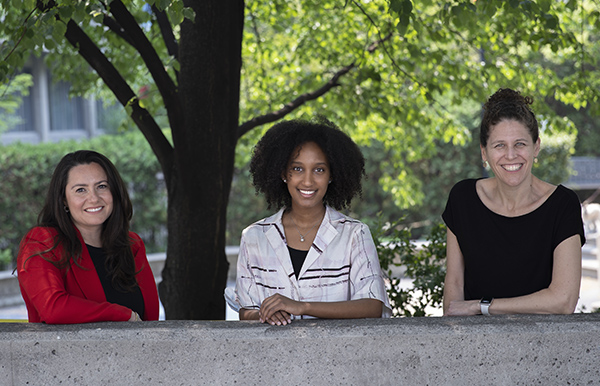Early childhood screen use may impact adolescent sexual health
Is there a link between screen use in childhood and an early start to sexual activity?

At a glance
Issue
Engaging in sexual activity at an early age may lead to an increase in risky sexual behaviour resulting in negative health outcomes. The amount of time in front of the TV, playing video games or video chatting may influence when kids decide to start having sex.
Research
This team will ask 13- to 18- year olds, through confidential questionnaires, about their social environment and sexual health. The findings will be paired with previous research collected by The Applied Research Group for Kids (TARGet Kids!) on links between early screen use and the start of sexual activity in adolescence.
Impact
The findings from these studies will influence how to promote healthy sexuality and reduce risky sexual behaviour among Canadian adolescents.
Is there a link between screen use and an early start to sexual activity? Researchers at Toronto’s Hospital for Sick Children (SickKids) are finding out so they can advise on how to promote healthy sexuality and reduce risky sexual behaviour among Canadian adolescents.
While sexual exploration and discovery is a normal and healthy part of adolescent development, having sex before age 15 may be associated with negative health outcomes such as unplanned pregnancy, sexually transmitted infections, dating violence, and exposure to sexually explicit websites.

Dr. Alène Toulany, an Adolescent Medicine Specialist at SickKids, and her research team are studying the relationship between screen use and sexual health behaviours and risks in Canadian youth. The researchers will determine if the type of screens, including TV, video games and video -chatting, and the time spent on screens influence the age young people start having sex.
The team will ask 13- to 18 –year–olds about their social environment, what they know about sexual health, their sexual interactions, their use of contraceptives, and their experience with sexting, pornography and dating violence. The self-administered, confidential questionnaire was co-designed with adolescents.
The research findings will build on data on screen use previously collected by The Applied Research Group for Kids (TARGet Kids!) and will determine any links between early screen use and the start of sexual activity.
These three Healthy Youth Catalyst Grant funded projects put Indigenous youth engagement, empowerment, and priorities front and centre in their focus. Congratulations to the funded teams and we look forward to seeing the outcomes and progress of your work!
This work is supported through the Healthy Youth Initiative, led by the CIHR Institute of Human Development, Child and Youth Health.
- Date modified: